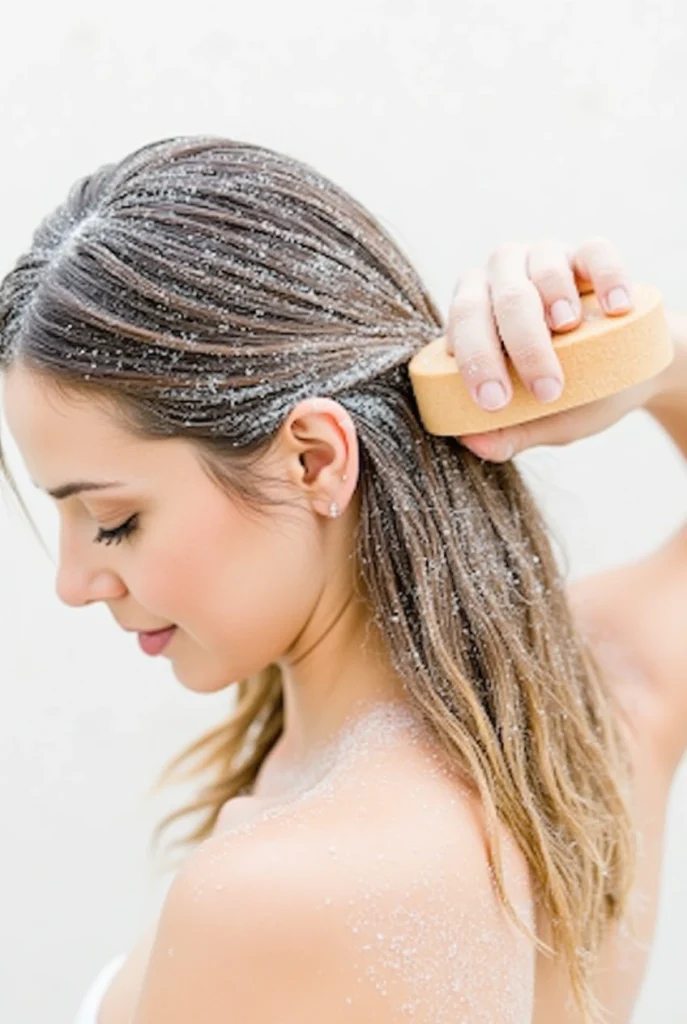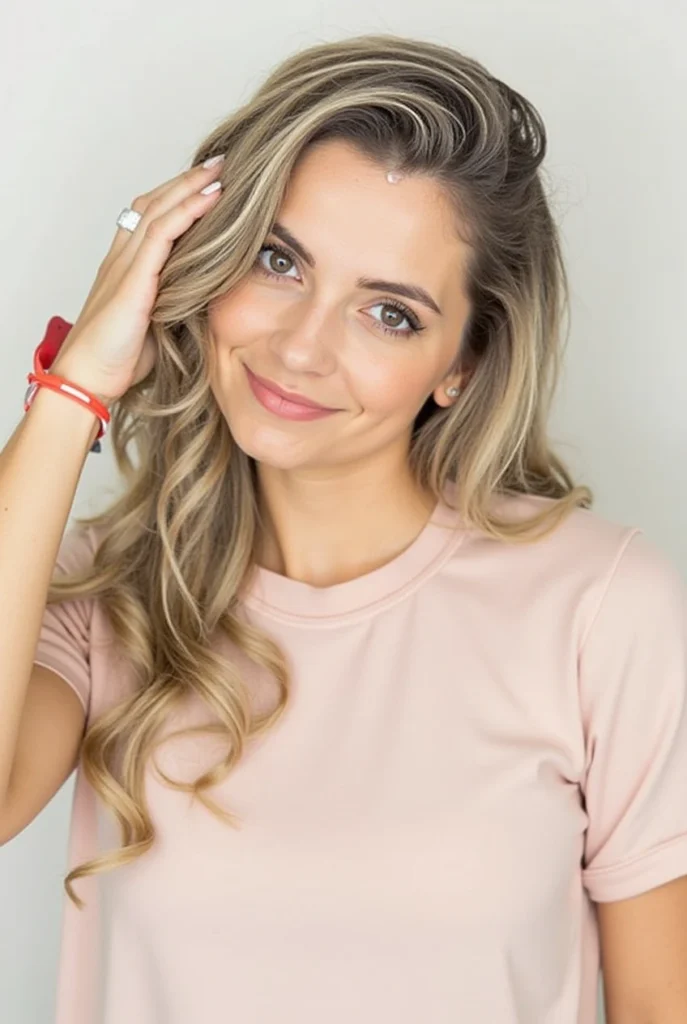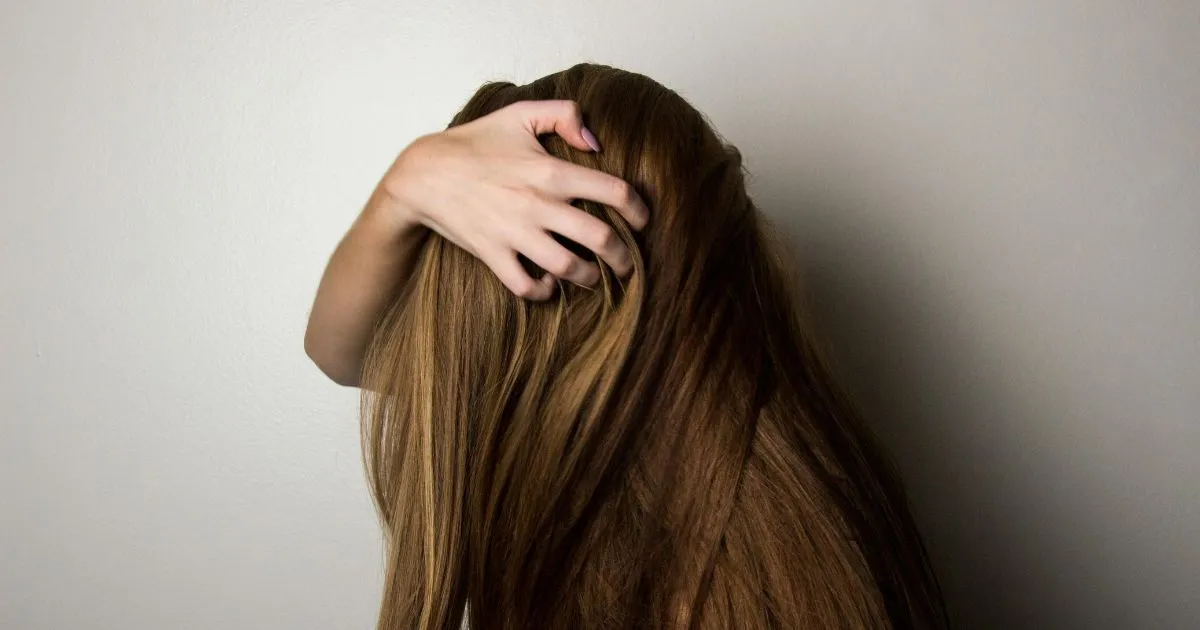Table of Contents
Ever seen a few extra strands in your brush after dry shampoo? You’re not alone. Many wonder if this shampoo leads to hair loss. As someone who uses it, this worry is real.
We’ll explore the truth about dry shampoo and hair health. We’ll sort out myths from facts. Let’s find out if this shampoo really causes hair loss.
The Controversy Surrounding Dry Shampoo and Hair Loss
Dry shampoo has become very popular lately. It’s a quick fix for those who don’t want to wash their hair every day. But, many people worry it might cause hair loss. It’s important to know how it affects our hair and scalp.
Understanding the Concerns and Misconceptions
One big worry is the buildup of dry shampoo on the scalp. It absorbs oil and dirt. But, some think it can block pores and mess with hair growth. This has led to the idea that it can make hair thinner or fall out more.
Some also think the alcohol in this shampoo dries out the scalp, leading to hair loss. While it can dry out the scalp, its effect on hair health is not always the same for everyone.
The link between dry shampoo and hair loss is not simple. Some people might notice more hair falling out or thinning after using it a lot. But, it’s not always clear if the dry shampoo is the main cause.
| Concern | Explanation |
|---|---|
| Buildup of residue on the scalp | Dry shampoo can accumulate and clog pores, leading to inflammation and disruption of the hair growth cycle. |
| Drying effects of ingredients | Alcohol and other drying agents in dry shampoo can dehydrate the scalp, potentially contributing to hair loss. |
| Lack of direct causation | The relationship between dry shampoo and hair loss is complex and not yet fully understood. |
What is Dry Shampoo and How Does it Work?
Dry shampoo is a popular hair care product that doesn’t need water. It absorbs oil and dirt, making your hair fresh without washing. But how does it do this?
Dry shampoo’s secret is in its ingredients. It has starch-based powders and oil-absorbing agents like rice starch. These ingredients soak up oil and dirt, making your hair feel clean.
To use this shampoo, spray or dust it on your roots. Focus on oily areas like the crown and temples. Let it sit for a few minutes. Then, brush or rub it through your hair to spread it evenly.
Dry shampoo is great for busy days when you can’t wash your hair. It’s a quick way to make your hair look and feel clean. But use it carefully to avoid build-up and scalp irritation.
| Key Ingredients in Dry Shampoo | Function |
|---|---|
| Starch-based Powders (e.g., rice starch, corn starch) | Absorb excess oil and dirt from the hair and scalp |
| Oil-absorbing Agents (e.g., silica) | Help to soak up sebum and grease, leaving hair feeling clean |
does dry shampoo cause hair loss
Exploring the Link Between Dry Shampoo and Hair Thinning
The debate about dry shampoo and hair loss or hair thinning is ongoing. Many worry that this shampoo might cause these problems. It’s crucial to look into this connection and find out what’s true.
Some think using dry shampoo too much can make hair thinner. Not washing the scalp often enough can mess with oil and pH levels. This might lead to a dry, irritated scalp and unhealthy hair.
But, there’s no solid proof that this shampoo causes hair loss or thinning. Many things, like genetics and hormones, can affect hair health. Stress and medical conditions also play a part.
If you’re concerned, talk to a dermatologist or hair expert. They can check your hair and scalp. They can also tell you how to use dry shampoo safely.
Overusing Dry Shampoo: A Possible Culprit for Hair Shedding
Dry shampoo is great for busy people or those with little time. But, using too much can cause hair shedding. This is a worry for those who want healthy, shiny hair.
Too much dry shampoo can build up on your scalp. It can block hair follicles, stopping hair from growing and renewing itself. This makes your scalp work harder, leading to more hair falling out.
Dryshampoo’s drying and oil-absorbing effects are good in small amounts. But, too much can harm your hair. It takes away natural oils, upsetting the hair’s balance and causing it to break and thin.
- Too much dryshampoo can block hair follicles, slowing down hair growth and renewal.
- Using dryshampoo too often can take away natural oils, harming the hair’s health and making it break and thin.
- Excessive dryshampoo use can lead to more hair shedding as the scalp struggles to nourish the hair.
It’s crucial to use this shampoo wisely. A little goes a long way to avoid hair shedding and thinning. Paying attention to your scalp and using dryshampoo with care can keep your hair healthy and shiny.
Dry Shampoo and Scalp Health: Uncovering the Connection
Dryshampoo is getting more popular, but it’s key to know its impact on scalp health. It’s a quick fix for not washing your hair as often. Yet, it can upset the balance of your scalp.
The Impact of DryShampoo on Your Scalp’s Well-being
Dryshampoo absorbs oil and dirt, making your hair look clean longer. But, it can also harm your scalp. The powdery ingredients in this shampoo might pile up on your scalp.

This can cause a few problems:
- Scalp irritation: The dryshampoo residue can make your scalp itch, turn red, or flake.
- Clogged hair follicles: The powder can block hair follicles. This can slow down hair growth and lead to dryshampoo and scalp health issues like does dryshampoo cause dandruff.
- Disruption of the scalp’s natural balance: Using too much dryshampoo can mess with your scalp’s oil production. This can make existing problems worse or cause new ones.
| Potential Scalp Issues | DryShampoo’s Impact |
|---|---|
| Irritation | Buildup of dryshampoo residue can cause itchiness, redness, and flaking |
| Clogged hair follicles | Accumulated powder can obstruct hair follicles, hindering hair growth and potentially leading to dandruff |
| Disruption of natural oil balance | Excessive use can disrupt the scalp’s natural oil production, contributing to imbalances |
Knowing how dryshampoo affects scalp health helps you choose better hair care. You can keep your scalp healthy and balanced.
Alternatives to Dry Shampoo for Healthier Hair
If you worry about dryshampoo’s side effects, like hair loss or dandruff, there are better options. These alternatives keep your hair healthy and strong, solving specific problems.
Regular shampoo and conditioner are great choices. They gently clean your scalp and hair without the risks of dryshampoo. This is especially good for those with dandruff or hair thinning.

Co-washing is another good option. It uses conditioner to wash your hair, keeping it moisturized and preventing dryshampoo-related hair loss. It’s perfect for dry, damaged, or color-treated hair.
| Alternative Hair Care Options | Benefits |
|---|---|
| Regular Shampoo and Conditioner | Gentle cleansing, nourishing for hair and scalp, can address dandruff and hair thinning |
| Co-Washing | Maintains natural oils, suitable for dry or damaged hair, can prevent dryshampoo-related hair loss |
| Clarifying Shampoo | Deep cleansing to remove product buildup, can help with dandruff and scalp health |
| Apple Cider Vinegar Rinse | Helps balance pH, can soothe the scalp and promote healthy hair growth |
A clarifying shampoo is good for deep cleaning. It removes buildup, excess oil, and impurities. This is great for those with dandruff or scalp irritation.
An apple cider vinegar rinse is also worth trying. It balances scalp pH, soothes irritation, and encourages healthy hair growth. It can counteract dryshampoo-related hair loss.
By trying these alternatives, you can keep your hair healthy and strong. This way, you can avoid the problems caused by this shampoo.
Understanding the Ingredients in Dry Shampoo
Knowing what’s in your dryshampoo is key to keeping your hair healthy. Many dryshampoos have ingredients that might harm your hair or scalp if used too much or wrong.
Identifying Possible Irritants and Their Role in Hair Loss
Let’s examine some common dry shampoo ingredients and their effects:
- Alcohol: Alcohol in dryshampoos can dry out your scalp. This might make your hair fall out more and get thinner.
- Silicones: Silicones can block your scalp and hair, stopping them from growing well.
- Fragrance: Some shampoos have synthetic scents. These can cause allergic reactions and make your scalp sore.
- Powders: The powders in shampoos, like cornstarch, can clog your scalp. This might slow down hair growth.
| Ingredient | Potential Impact |
|---|---|
| Alcohol | Drying and irritating, leading to increased shedding and thinning |
| Silicones | Build-up on hair and scalp, clogging pores and hindering hair growth |
| Fragrance | Trigger allergic reactions or sensitivities, causing scalp irritation |
| Powders | Accumulation on the scalp, potentially contributing to clogged follicles |
Being aware of these ingredients can help you choose a shampoo that’s gentle. This way, you can find one that works well for your hair and scalp.
Proper Usage and Moderation: Keys to Preventing Hair Loss
Using shampoo wisely is key to avoiding hair loss. It’s great for keeping your hairstyle fresh longer. But, using too much can harm your hair, causing it to thin or fall out.
To use dryshampoo safely, follow these tips:
- Limit Frequency: Use shampoo only 2-3 times a week. This lets your scalp breathe and your hair get washed regularly.
- Proper Application: Apply shampoo mainly to your roots and oily spots. Avoid your hair’s ends, as they dry out and break easily.
- Thorough Removal: Brush out and remove all shampoo left behind. This stops it from clogging your pores.
- Alternate with Wet Washing: Mix shampoo with regular washing. This keeps your scalp and hair clean and healthy.
By using dryshampoo wisely and in moderation, you can keep your hair healthy. This way, you enjoy its benefits without worrying about hair loss.
| DryShampoo Usage Recommendations | Frequency | Application Technique | Removal Method |
|---|---|---|---|
| Optimal Usage | 2-3 times per week | Focus on roots and oil-prone areas | Thoroughly brush out residue |
| Overuse to Avoid | Daily or every other day | All over hair, including ends | Leaving residue on scalp |
Conclusion
Exploring the link between dryshampoo and hair loss shows it’s a complex topic. It’s important to know the risks and benefits of using shampoo often.
Dryshampoo can be handy for a quick hair fix. But, using it too much or with harsh ingredients can harm your hair. This might lead to thinning and shedding.
Choosing to use dry.shampoo should depend on your hair and scalp health. Being aware and using it wisely helps keep your hair healthy. This way, you can enjoy its benefits without harming your hair.
FAQ
Does dry shampoo cause hair loss?
The link between dryshampoo and hair loss is debated. Some studies suggest a connection, but the evidence is not solid. Using too much shampoo or using it wrong can lead to hair shedding. But, using it right and in moderation can help avoid these problems.
Can dry shampoo cause hair thinning?
Some worry that dry shampoo might make hair thinner, especially if used too much. Ingredients in some shampoos can dry out or irritate the scalp. Yet, the science on this is mixed, and more research is needed to understand its effects on hair thickness.
Does dry shampoo cause baldness?
There’s no clear proof that this shampoo causes baldness or permanent hair loss. It’s seen as a safe and easy hair care option. But, it’s key to use it wisely and follow the instructions to avoid any negative effects on your hair and scalp.
Can dry shampoo cause hair fall or shedding?
Using too much or wrong dryshampoo can make hair fall out more. This happens because the product builds up on the scalp, disrupting hair growth. The impact varies based on hair type, scalp health, and how you use it.
Can dry shampoo damage hair?
Dry shampoo is usually safe, but it can damage hair if used too much or wrong. Too much can cause dryness, brittleness, and breakage. It’s important to use it as directed and in moderation to protect your hair.
How does dry shampoo affect scalp health?
Dry shampoo’s impact on the scalp can differ. It can absorb oil and refresh the scalp between washes. But, using it too much or for too long can cause irritation, dryness, and dandruff. Keeping the scalp healthy is key for good hair growth and health.
What are the side effects of overusing dry shampoo?
Overusing dryshampoo can lead to several issues. These include more hair shedding or thinning, dry and brittle hair, scalp irritation, and flakiness. It can also disrupt hair growth and clog hair follicles. To avoid these, use shampoo wisely and follow the instructions carefully.
How can I prevent hair loss from dry shampoo?
To prevent hair loss from dry shampoo, follow these tips. Use it sparingly and only when needed, not daily. Alternate between this shampoo and regular shampoo to avoid buildup. Choose a gentle, non-drying shampoo. Clean and rub the scalp well when using dry shampoo. Avoid using it on the same scalp area every day. Keep a healthy scalp and hair care routine, including deep conditioning treatments.
Can dry shampoo cause dandruff?
There’s evidence that dryshampoo might lead to dandruff or make it worse. The buildup can disrupt oil balance and cause fungus growth, leading to dandruff. To prevent this, use shampoo in moderation and clean the scalp well when switching to regular shampoo.


Comments are closed.